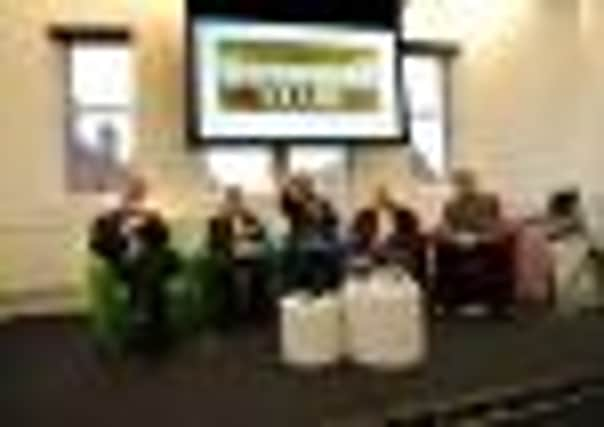Business Diary: November 15


That was Facebook’s motto, the firm’s public policy director in Europe, Middle East and Africa, Lord Richard Allan, told an audience at an event for the Yorkshire Post Business Club last week.
He told the event at Shine, Harehills, Leeds: “The challenge for a business like ours is to maintain that innovation culture and we have values that try and do that. We had a value that was ‘move fast and break things’ and that meant you will not be punished in this company if you try and do something really innovative but it happens to fail. You will be punished if you don’t try and do anything innovative at all.
Advertisement
Hide AdAdvertisement
Hide Ad“We then changed that motto to ‘move fast, even if it sometimes breaks things’ because we thought that was better, and now I think it’s just ‘move fast‘, but the culture remains the same. The only thing you’ll be punished for is not trying to be innovative.” Lord Allan also said that the best ideas were not going to come from today’s successful businesses. He added: “That’s a tough thing to say but it is the case that once you’ve built a business and you’re successful, you can be brilliant at what you do but off there somewhere in the distance are three people who are coming up with some amazing idea that you would have never have thought of and that’s going to be the next successful idea.”
The myth of youth
IT is not just American kids who use Facebook, as popular myth suggests, said Lord Allan.
Facebook’s under-18 population is below 15 per cent and its United States population is under 25 per cent.
In the UK, Facebook has around 30m people using the service each month, with over half of those coming back each day.
Advertisement
Hide AdAdvertisement
Hide AdLord Allan said more females use the site than males, and as the service grows the fastest growing demographic becomes 35+, which he described as the “weddings and babies syndrome”.
He said: “People in that 20-30 demographic get on to Facebook, they get married, they have babies, and then they say, mum, dad, if you want to see the photos you have to get on to Facebook, so we have a kind of intergenerational marketing strategy, which was not deliberate, but turns out to be very effective in which people are getting their parents on to the service, and sometimes their grandparents and great grandparents.”
Facebook has over 350m people using the service on mobiles.
People who use it on mobile devices are also the most frequent users of the website.
It’s a funny thing . . .
Advertisement
Hide AdAdvertisement
Hide AdIT’s the corporate equivalent of saying that the dog ate your homework.
Businesses are resorting to more extreme excuses for the late payment of invoices as the economic climate remains tough, according to a Yorkshire specialist in debt recovery.
Rob Lewis has collected more than £20m on behalf of his clients during a career in credit control spanning more than 20 years. Now the 38-year old co-founder of Bradford-based Corporate & Commercial Credit Solutions has compiled a list of creative – excuses for non-payment. Among the most bizarre excuses he has been given are:
“I only had one cheque left in my book and whilst doing the books in the garden, a slug trailed over it and so I couldn’t use it.”
Advertisement
Hide AdAdvertisement
Hide Ad“I’m suffering from Necrotizing Fasciitis (the so-called “flesh-eating disease”) and can’t use my writing arm.”
“I had the roof down in my convertible and my cheque book blew out on the M1.”
“I don’t pay anybody until I’m chased for payment but I don’t pay anybody who harasses me for money.”
Mr Lewis said: “The days of saying that ‘the cheque is in the post’ are long gone. Debtors trying to stall for time are becoming more creative in their excuses – but it’s important that businesses who are owed this money don’t fall victim and end up out of pocket.”
Obvious – eventually
Advertisement
Hide AdAdvertisement
Hide AdIf Freeserve founder Ajaz Ahmed hadn’t persevered with his business idea he might still be a retail store manager.
His boss at Dixons initially rejected his idea to create a free internet service provider and Mr Ahmed almost gave up until he read an article in Vanity Fair magazine, which said the future business leaders would be those who control content and media.
It highlighted Ted Turner, the founder of CNN, the world’s first 24-hour news channel. “The article said that what people like Ted are required to do is do the obvious before it becomes obvious to everyone else,” Mr Ahmed told Diary.
“History is littered with examples or ordinary people doing extraordinary things because they could see the obvious before everyone else.
“That’s what made me persevere.”